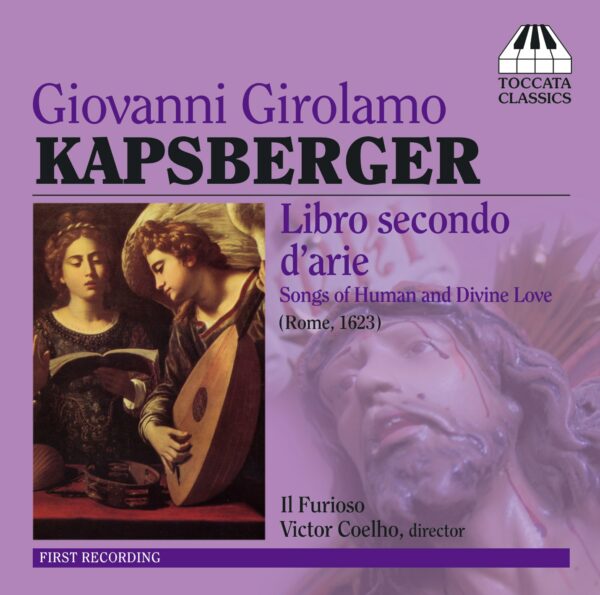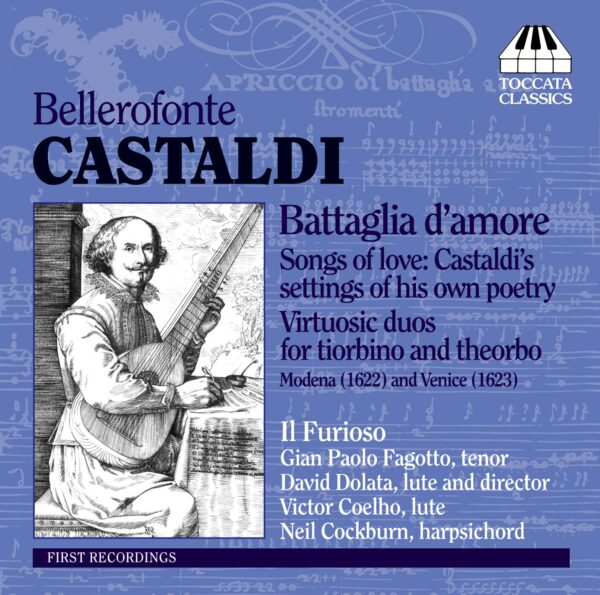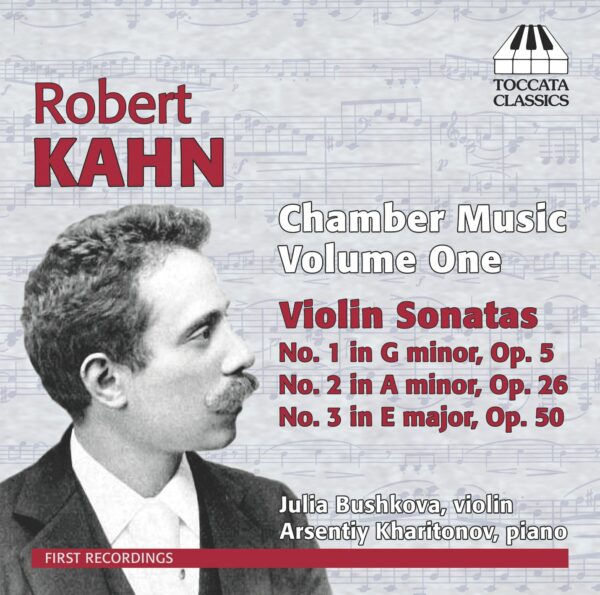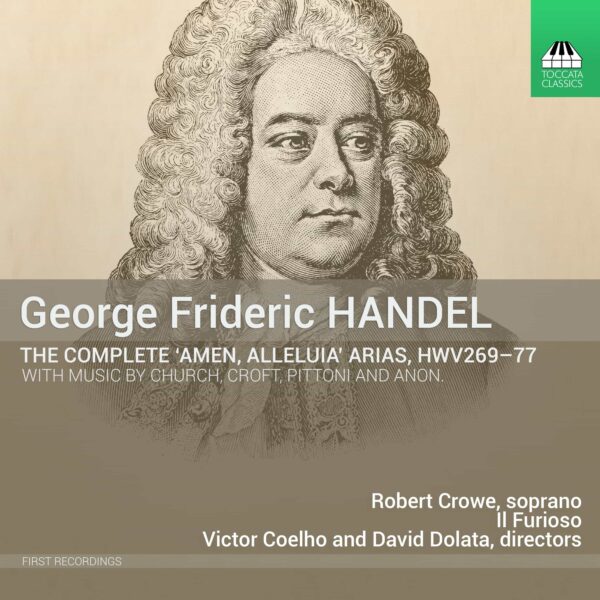Giovanni Girolamo Kapsberger: Libro secondo d’arie — Songs of Human and Divine Love
Giovanni Girolamo Kapsberger (1580–1651) was one of the most innovative and original composers in early seventeenth-century Rome, and a virtuoso on the lute and chitarrone, or theorbo. His Second Book of Arias, published in Rome in 1623, for one and two voices, are extraordinary works that reveal both his vivid imagination in setting poetry to music, and his flair for dramatic gestures, making him one of the most quintessentially 'Baroque’ composers of his time.
Il-Furioso
Victor Coelho, director
Listen To This Recording:
-
Libro secondo d’arie (1623)
- Voi, che dietro a fallaci
- Corrente (Kapsberger, 1626)
- Alma che fai, che pensi
- Sonata 2.a (Bellerofonte Castaldi, 1622)
- Tu dormi
- Pargoletto son io
- I’vo piangendo i miei passati tempi
- Dolcissimo Signore
- Canzona (anon.)
- T’inaspri à miei lamenti
- Dunque con stile lieto, dolcissimo
- Pietà di chi si more
- Popol diletto mio
- Monica (anon.)
- Ancora Il Rè nasce piangendo in terra
- Toccata (anon.)
- O come in van credei
- Mustazzin corrente (Castaldi)
- Perché Pietà





MusicWeb International :
‘this is as good a recording of early music as I have ever heard.’
—Garry Higginson, MusicWeb International
Goldberg Magazine :
‘The CD features some first-class singing, especially from the group’s tenor, Gian Paolo Faggoto.… Overall, this polished and pleasurable recording is a welcome reminder of the musical versatility of one of the 17th century’s most original composers.’
—Zak Ozmo, Goldberg Magazine
Fanfare Magazine :
‘The recording by Il Furioso is particularly effective. Paul Grindlay’s bass is sonorous and powerful, the two sopranos, Janet Youngdahl and Julie Harris, clear and precise, and Gian Paolo Fagotto’s tenor decisive with an excellent sense of the period style and ornamentation. The accompaniment by David Dolata, Victor Coelho, and Neil Cockburn is tasteful and with the variations of chordal accompaniments in the arias that keep things moving forward without sacrificing the important contemplative textual meaning that needs to emerge. In short, this is one recording that anyone interested in Roman music of the early 17th century must have. It is a sensitive, resonant, and effective collection that demonstrates the musical genius of the composer’
—Bertil van Boer, Fanfare Magazine July/August 2013
Fanfare Magazine :
‘Paulus plays everything with assurance, fluidly meeting all technical demands. Carlos Miguel Prieto and the Solistas de Minería string orchestra accompany with sensitivity.’
—Fanfare Magazine